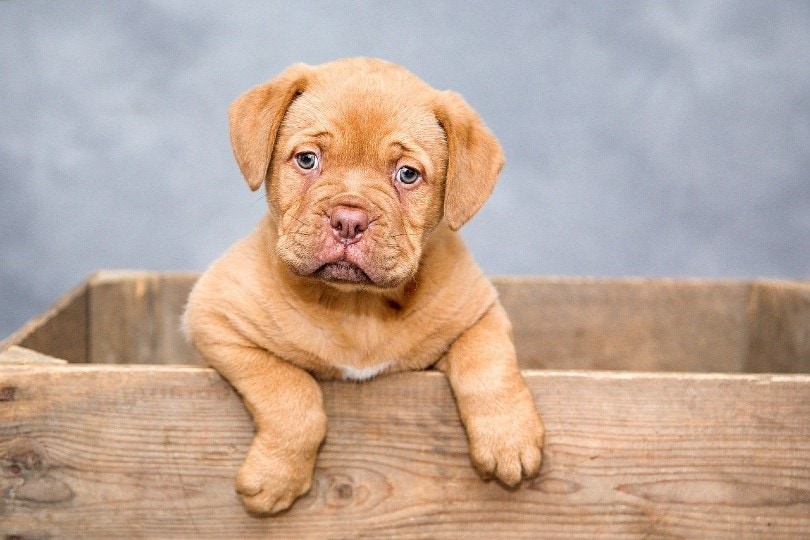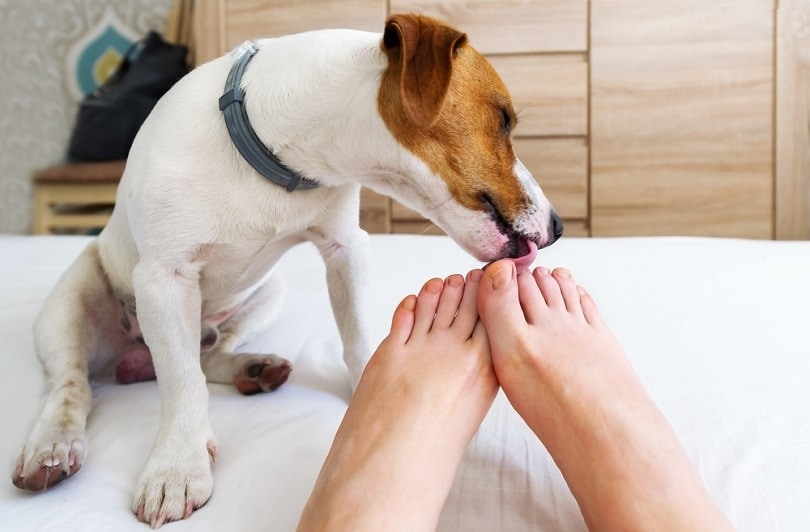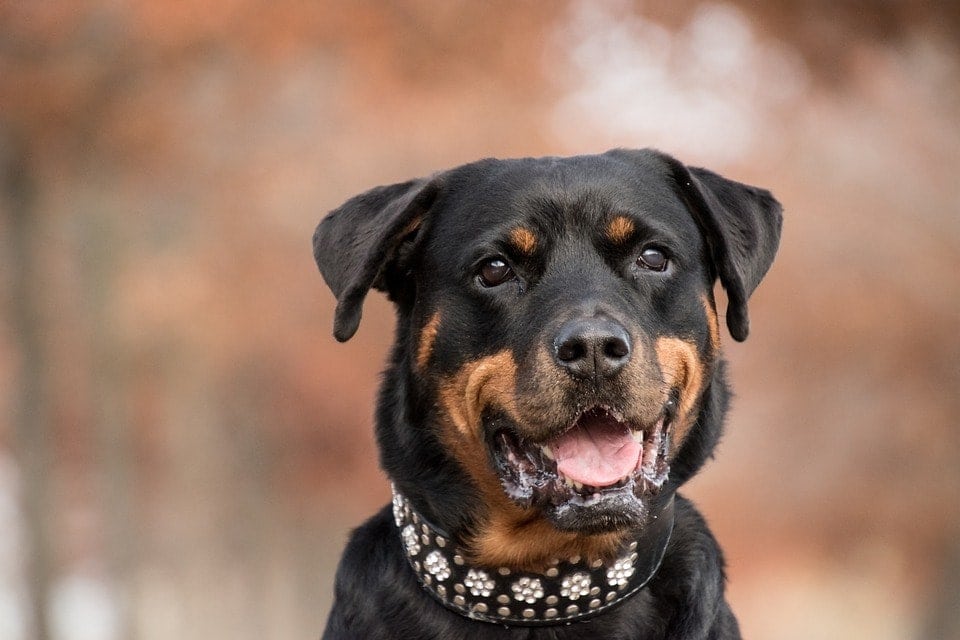Why Does My Dog Keep Licking the Air? 7 Reasons & What to Do
By Oliver Jones
Updated on
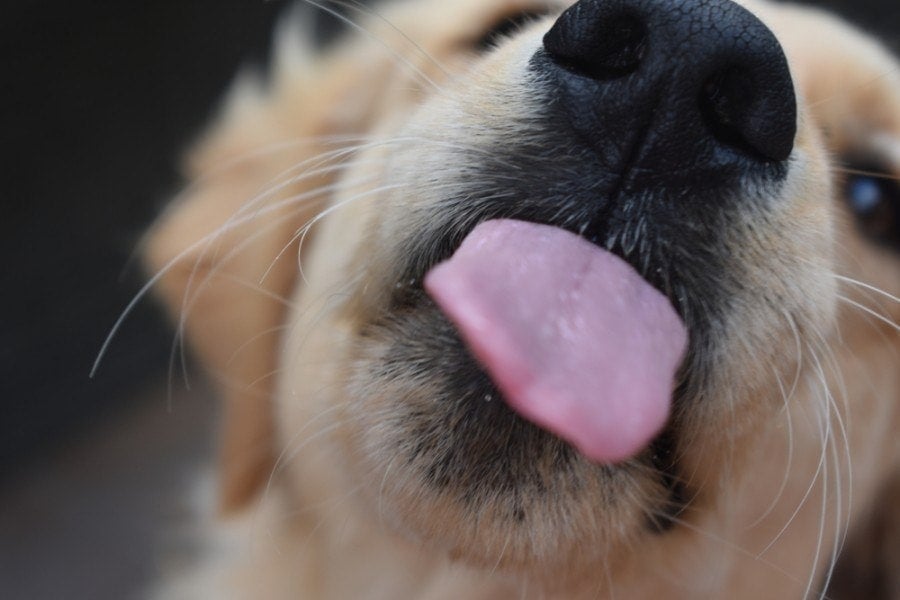
While dogs engage in numerous behaviors that we find adorable, some other ones can leave us quite perplexed. For instance, has your pup ever started compulsively licking the air for no obvious reason?
While air-licking pups can look humorous, some of the answers behind this odd behavior are downright dark. If your dog is licking the air, they could be experiencing a hazardous health issue.
Here are seven reasons why your dog could be licking the air.
The 7 Reasons Why Dogs Lick the Air
1. A Foreign Object Is Stuck in Their Mouth
If your pup is licking at the air, there might be a foreign object stuck in their mouth or between their teeth. This is causing them to not actually lick at the air but at the physical sensation they feel in their mouth. Check the roof of your pet’s mouth to see if anything is stuck up there. While you’ve got their mouth open, also inspect the teeth, lips, and gums. Be sure to also check for loose teeth.
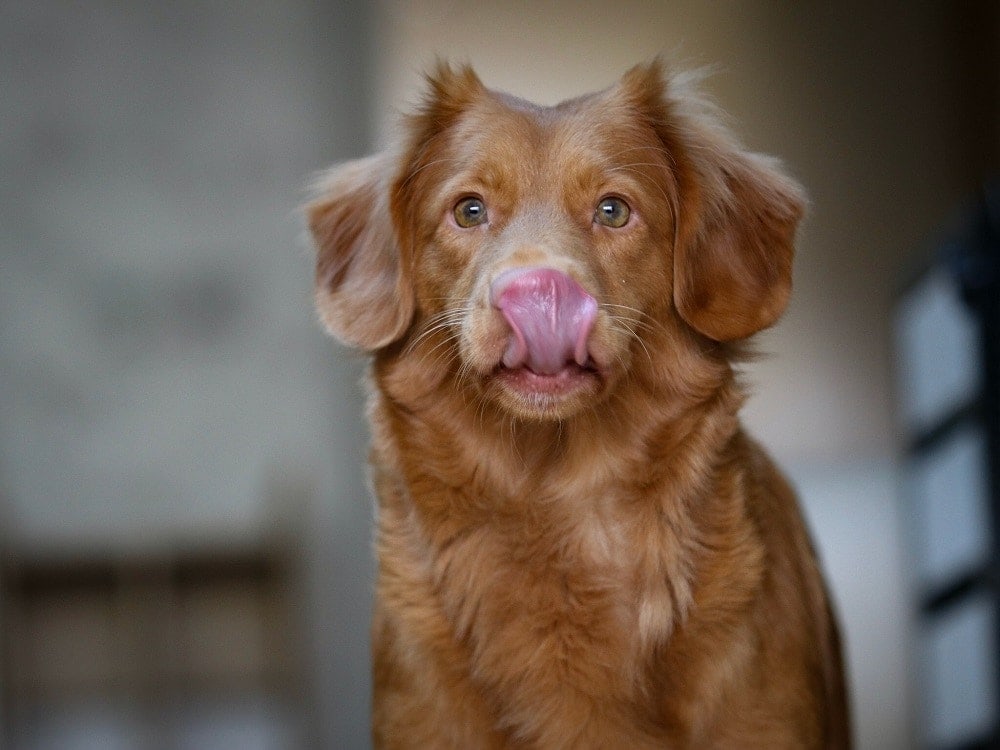
2. Severe Stress
Dogs will lick the air if they’re feeling anxious or stressed. This could be because of a disruption to their daily routine, a recent move, a new pet in the household, or strangers entering your home. While your dog is displaying this behavior, pay close attention to other signs of anxiety, including submissive urination, crouching, or trying to hide. You may want to consider making an appointment with an animal behaviorist if the problem persists.
3. Canine Cognitive Dysfunction
If you own a senior dog that is licking the air, they may have developed canine cognitive dysfunction. This disease is a lot like Alzheimer’s in people and can result in your pet licking the air and other repetitive behaviors. Contact your vet to schedule a wellness check.
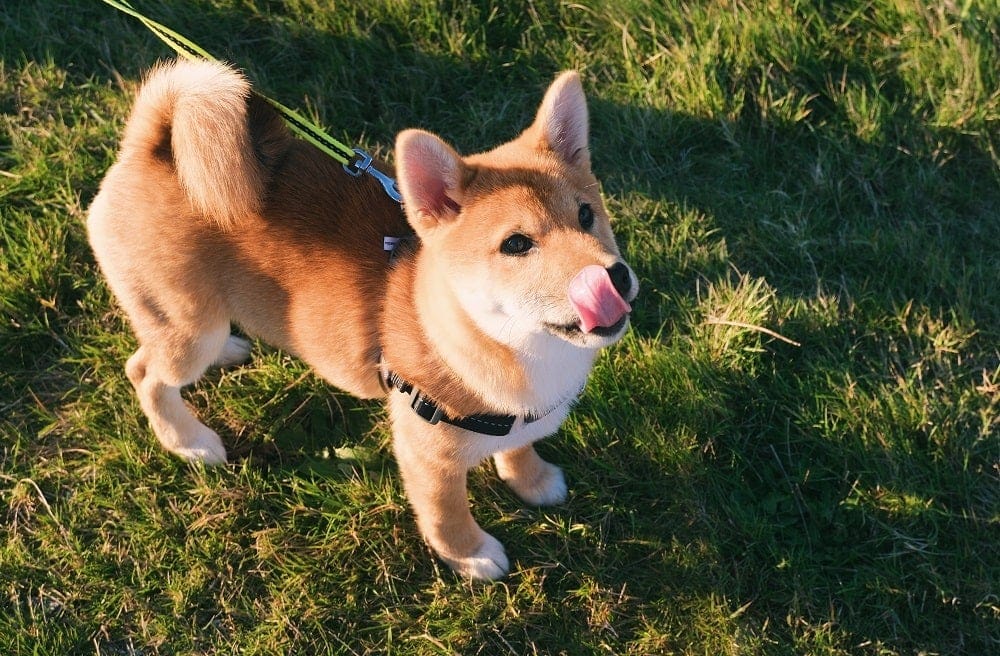
4. Tracking Down a Strong Scent
A dog that seems to be licking the air may also be participating in a behavior known as the “flehmen response.” This happens when a dog’s nose picks up certain smells, such as urine, blood, or pheromones. The mouth motion helps them to push these important scents over the vomeronasal organ, which are sensory cells in the nose that detect moisture-borne odor molecules.
5. GI Problems
There is actually a medical term for when dogs lick the air or other surfaces. Called “Excessive Licking of Surfaces” (ELS), this behavior can indicate a gastrointestinal issue, including diarrhea, vomiting, abdomen pain, and a decreased appetite. If your dog’s licking is accompanied by vomiting or diarrhea, make a vet appointment right away.
If you need to speak with a vet right now but can’t get to one, head over to JustAnswer. It’s an online service where you can talk to a vet in real time and get the personalized advice you need for your pet — all at an affordable price!
6. Seizures
Canine seizures can lead to a wide variety of behaviors. Some dogs will paddle their legs while laying on their sides. Others will have subtler signs, such as compulsive licking.
7. Boredom
One of the more benevolent reasons for this behavior is that your dog is simply bored. They could be trying to seek attention. If your dog is also excessively barking or chewing items they shouldn’t be, dedicate more time to engage and play with them.
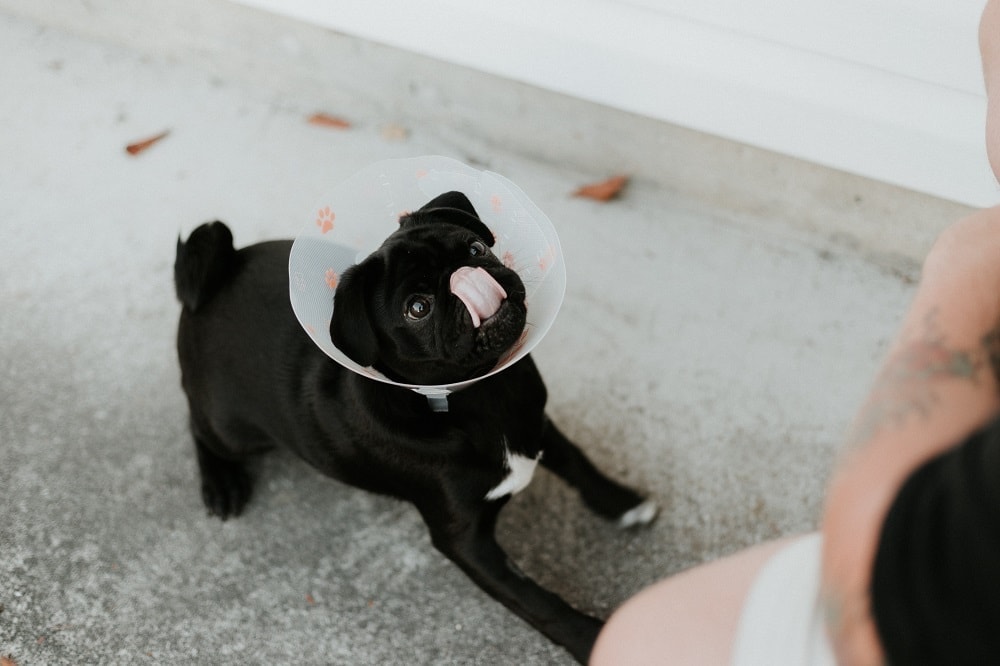
How to Stop My Dog From Licking Air
If your pet isn’t suffering from any health issues, there are plenty of ways to stop their air licking, including:
- Ensuring they aren’t allergic to a new diet.
- Preventing stress by keeping a daily routine and introducing them to new pets in a slow, safe manner.
- Buying them new toys to keep them occupied and stimulated.
- Brushing your dog’s teeth daily to remove any stuck food particles.
If you believe that your dog’s air licking is a sign of an underlying health condition, make an appointment with your vet.
Conclusion
While air licking can look like bizarre behavior, it may mean your dog is suffering from a medical condition. Get them checked out by a vet to rule out any health concerns. If they continue to lick the air, this may be due to a behavioral issue. Ensure your dog is engaged and stress-free by keeping a daily routine, playing with them often, and slowly introducing them to new pets, people, or situations.
See Also:
Featured Credit: RN23W, Shutterstock


